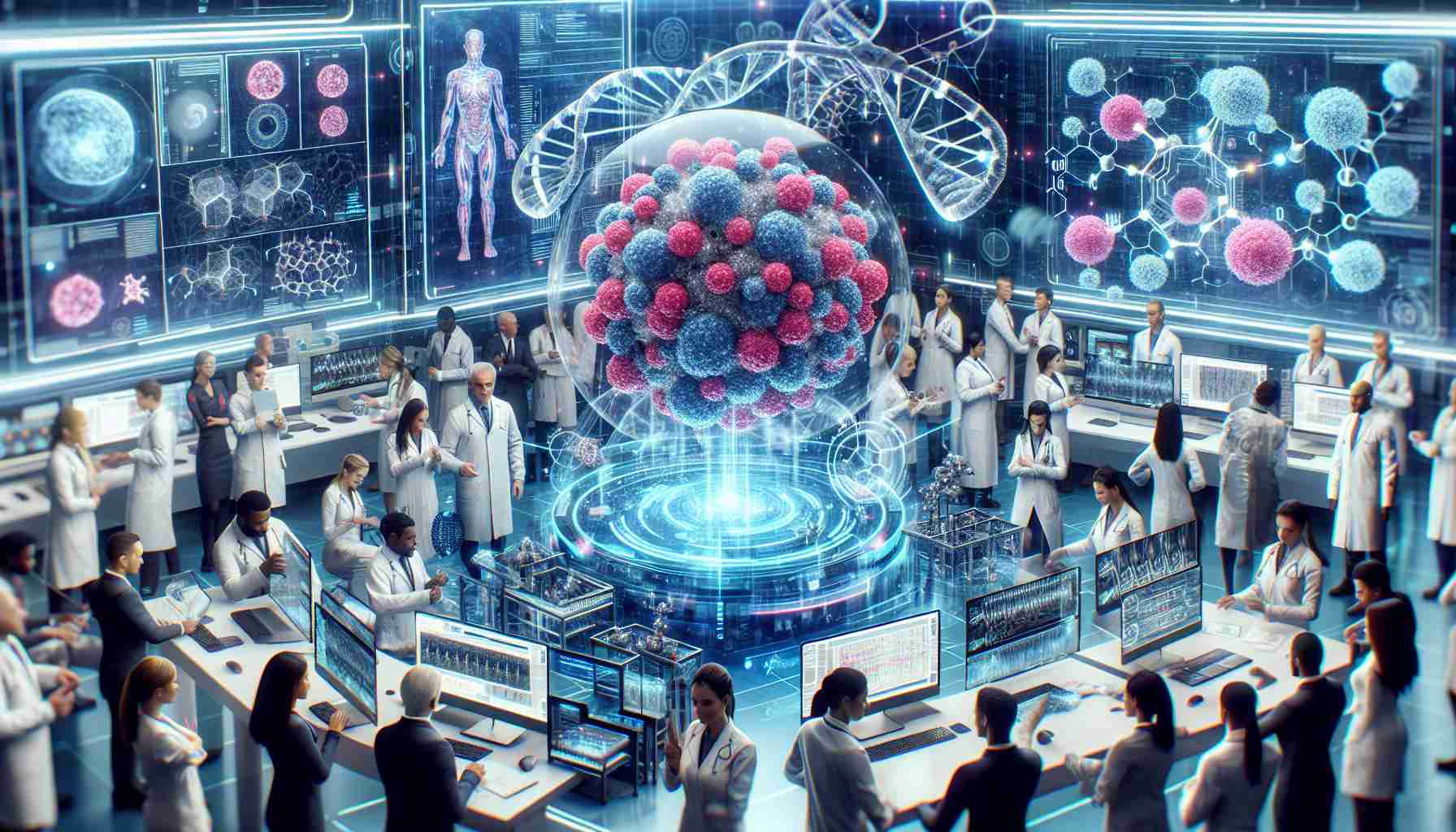Timely Cancer Treatment Begins with Speedy Detection
The prompt initiation of cancer treatment and early detection of metastasis are crucial in battling the disease effectively. In this challenging domain of accurate cancer diagnosis, Artificial Intelligence plays a significant and helpful role.
A group of seven Greek engineers and programmers specialized in Artificial Intelligence tools have pioneered a particularly innovative system that expedites cancer diagnoses. They are the creators of DeepMed IO, a UK-based startup.
The Struggle of Pathologists and DeepMed’s Solution
The team developed an algorithm in response to a global shortage of pathologists, which causes delays in cancer diagnoses impacting patient health. This algorithm saves valuable time for both doctors and patients.
DeepPath-LYDIA is an AI-driven system designed for diagnostic assistance in cancer staging. It assists pathologists by highlighting detected cancerous regions, providing precise measurements of these areas to facilitate a more accurate and faster diagnosis. This product has received its CE Mark certification and is compatible with hospitals or private entities equipped with a digitized pathology lab.
Enhancing Healthcare for Patients and Systems
DeepPath-LYDIA does not replace the necessity of a pathologist but enhances the accuracy and speed of finding metastases, even in high-pressure conditions that can compromise human performance. It provides immense benefits by improving quality of life and treatment outcomes for patients. Healthcare systems benefit from such AI support, which not only ensures quality service but also reduces diagnosis processing times and costs, including those associated with expensive immunohistochemistry techniques used in metastasis detection.
Currently, DeepPath-LYDIA, with its unique capability to detect metastases in melanoma and three additional cancer types with the same AI model, is being tested in pilot projects across hospitals in the United Kingdom, the Netherlands, and Israel. DeepMed has also been integrated into NHS software solutions providers, partaking in a project to implement the system within the PathLAKE-Plus, a consortium of 26 hospitals in southern England.
The founding team is seeking investment to extend their system for pan-cancer detection and is on the lookout for digitized pathology labs in Greece and abroad to make this advanced AI system even more widely beneficial.
Challenges and Controversies in AI-Based Cancer Diagnosis
While Artificial Intelligence (AI) offers immense potential in cancer diagnosis, several challenges and controversies persist. One significant challenge is the integration of AI systems into existing healthcare infrastructures, which can be both technically and culturally difficult, as it requires changes in workflow and potential retraining of personnel. Ensuring the accuracy and reliability of AI algorithms is also crucial, as misdiagnoses can have severe consequences for patients. There is also the issue of data privacy and security, as healthcare data are extremely sensitive, and any system must maintain the utmost integrity of patient information.
Moreover, the ethical implications of relying on algorithms for critical health decisions can be a point of contention. The possibility of AI systems inheriting biases present in the training data or being manipulated poses a risk of unequal care or incorrect diagnoses. Consequently, the regulatory landscape is still evolving to address these concerns and establish clear guidelines for the development and deployment of AI in medical diagnostics.
Advantages and Disadvantages of AI in Cancer Diagnosis
Advantages:
1. Increased Efficiency: AI can rapidly analyze large volumes of pathology data, speeding up the diagnosis process.
2. Consistency: Unlike humans, AI systems do not suffer from fatigue and can maintain a consistent level of performance.
3. Cost-Effectiveness: In the long run, AI can lead to cost savings by reducing the time and resources needed for cancer diagnosis.
4. Extended Reach: AI can help address the shortage of pathologists worldwide, providing diagnostic support where it is most needed.
Disadvantages:
1. High Initial Costs: Implementing AI-based systems can require substantial upfront investment in technology and infrastructure.
2. Risk of Errors: While AI can be highly accurate, it can still make mistakes, especially if trained on insufficient or biased datasets.
3. Job Displacement Concerns: There is fear among medical professionals that AI could reduce the need for human expertise, leading to job losses.
4. Dependence on Digital Infrastructure: The effectiveness of AI systems like DeepPath-LYDIA relies on the presence of digitized pathology labs, which may not be available in all healthcare settings.
You may find more information on the overall role of AI in healthcare and related breakthroughs on the following websites:
– World Health Organization (WHO)
– Cancer Research UK
– National Institutes of Health (NIH)
These links lead to the main domains of reputable organizations that delve into the broader context of healthcare, cancer research, and innovation, which may indirectly highlight the role and impact of AI in diagnostic medicine.
The source of the article is from the blog crasel.tk

